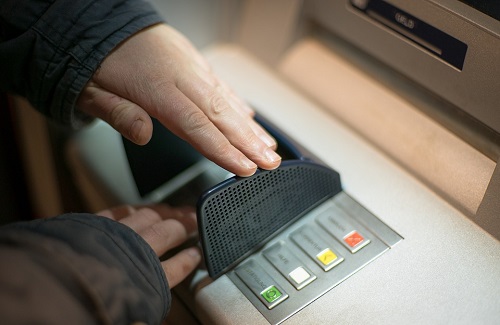For any Brit seeking to open a bank account in the USA there will be much that is familiar about the process. There are however some key differences that can trip you up along the way.
This is one of those things you may find easier to sort out before making your move abroad. It may complicate the process having to open an account before you have residency, but it can help you to bypass the more challenging elements of the US system.A few questions to ask yourself first:
• Do you need a US account or does your current bank offer an international account?
• What documentation will you require?
• Will you have a regular income when you first arrive in the States?
• How do you want to manage your savings and pension?
US account versus international account
If your bank operates in the US, or has a reciprocal arrangement with a US based one, then an international account may be the way forward. They can set this up with no additional ID checks and your current credit rating will transfer with you. You are likely to need a larger than normal balance and there is nearly always a requirement to keep the balance at a certain level to keep the account open. The smallest deposit we found was 16K, with typical balance requirements of between 8 and 20K.
A US personal account is called a ‘checking’ account, rather than a current account, and some of the requirements are very similar to the UK. To open an account you will need:
• Proof of your identification in photo form.
• Proof of address and your right to reside in the US.
• Your social security number (which you may not have immediately on entry).
• A credit rating. This can be tricky as you won’t have one state side to begin with.
This is where things can get complicated and some forward planning is required. Because of the very stringent money laundering rules in the US, you may be asked to account for any sum you are depositing.
If you have liquidated your assets in order to make the move, you may be transferring large amounts of cash from the UK. You will need documentation to prove this is not money gained through illegal methods.
There are a few obvious examples of this, for example the sale of property or cashing in of pensions and investments. These should be easy to account for, but don’t forget the smaller items. A family that sells all of their furniture, bikes and a couple of cars may find themselves with a tidy sum with little documentation to show for it.
Keep all bills of sale; it will help in the long run.
Account fees and rules
Most checking accounts have a minimum monthly deposit. This can be quite high for some accounts but as low a few hundred dollars for others. This again may catch you out if you are planning to live off your savings for a few months while you get settled. Those who have taken early retirement, but do not expect to receive pension payments for a few years, can also be caught out with this.
If you are not expecting a regular income for a while then it may be worth keeping some of your capital in a UK bank and arranging for monthly deposits across the pond. Watch out for transfer fees if you have to do this and again, documentation! Be ready to account for where the money is coming from if asked.

One thing you will begin to miss pretty quickly is the link symbol. Unlike the UK and Europe, many banks will charge you for using their ATMs if you do not bank with them. You will need to get into the habit of using only your bank’s machines or those with which they have reciprocal arrangements. It’s also not uncommon to be charged for using the cashpoint frequently. You will basically need to get used to being charged for every interaction you have with your bank. The charges are only small amounts, but they can add up quickly if you are not organised.
Setting up your account
As in the UK, most banks have a system that allows you to set up your account online. However, as you will not have a credit rating, this is unlikely to be approved for a foreign passport holder on the first attempt.
It is much easier to book an appointment with your local branch, gather up all your paperwork and do the whole thing in person. US banks still favour the personal touch and you may even have a named account manager who would manage any future credit or loan agreements you take out.
Once you are up and running you will want to transfer your money across. Be aware that sometimes you are better using a third party currency specialist to move the money between accounts. You will want to get the best possible exchange rate, with the lowest possible fees. It’s likely your new bank will charge you a receiving fee, but these aren’t usually too high. Ask your UK bank what exchange rate they will give you and then shop around. When you are moving large sums like this it is worth it.
Even if you’ve only got a few months’ salary to transfer, that extra few hundred dollars could make all the difference.
Managing your new account
Make sure you have a handbook of all the new rules and regulations you have to comply with to avoid charges and penalties. This will likely include:
• Minimum payments each month
• Minimum initial deposit
• Overdraft agreements
This is one you can’t get wrong. It’s worth having an overdraft facility even if you don’t think you’ll use it. US banks still use cheques heavily, and bouncing a cheque is technically a felony that could get you a criminal record and a significantly damaged credit record.
While it’s unlikely the police will come breaking down the door, in some states the district attorney’s office will chase up the money owed under threat of prosecution. What might be a CCJ in the UK, becomes a criminal record in the US, and depending on the amount involved, potentially a fraud conviction.
All in all the US banking system is more tightly monitored by the inland revenue than you would find in the UK and a little more penalty driven. Much about it will feel familiar, but it’s important to remember that what might be a letter or a penalty fee in the UK, may get your account restricted or closed in the US. As with most financial systems, the more money you have, the less you will be charged and the more leeway a bank will give you.
There is also less data protection meaning that potential employers may do credit checks on you before making an offer. You want to protect your rating as best as you can and stay within the lines.
Keep the paperwork up to date and keep them informed and you should be fine.

